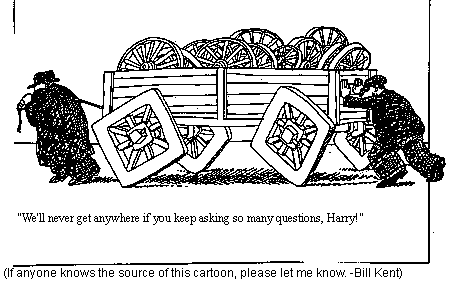

Machiavelli
...there is nothing more difficult to take in hand, more perilous to conduct, or more uncertain in its success, than to take the lead in the introduction of a new order of things. Because the innovator has for enemies all those who have done well under the old conditions, and lukewarm defenders in those who may do well under the new. This coolness arises partly from the fear of the opponents, who have the laws on their side, and partly from the incredulity of men, who do not readily believe in new things until they have long experience of them.
–N. Machiavelli, The Prince (1513), translated by W.K. Marriott. Great Books of the Western World, Vol. 23, Chicago, Encyclopedia Brittanica, Inc., 1952.
Matthew 25:30 – Jorge Luis Borges
And cast ye the unprofitable servant into outer darkness:
there shall be weeping and gnashing of teeth.
The first bridge on Constitution. At my feet
the shunting trains trace iron labyrinths.
Steam hisses up and up into the night
which becomes, at a stroke, the Night of the Last Judgment.
From the unseen horizon,
and from the very center of my being,
an infinite voice pronounced these things–
things, not words. This is my feeble translation,
time-bound, of what was a single limitless Word:
"Stars, bread, libraries of East and West,
playing cards, chessboards, galleries, skylights, cellars,
a human body to walk with on the earth,
fingernails, growing at nighttime and in death,
shadows for forgetting, mirrors which endlessly multiply,
falls in music, gentlest of all time’s shapes,
borders of Brazil, Uruguay, horses and morning,
a bronze weight, a copy of Grettir Saga,
algebra and fire, the charge at Junin in your blood,
days more crowded than Balzac, scent of the honeysuckle,
love, and the imminence of love, and intolerable remembering,
dreams like buried treasure, generous luck,
and memory itself, where a glance can make men dizzy–
all this was given to you and, with it,
the ancient nourishment of heroes–
treachery, defeat, humiliation.
In vain have oceans been squandered on you, in vain
the sun, wonderfully seen through Whitman’s eyes.
You have used up the years and they have used up you,
and still, and still, you have not written the poem."
–Translated by Alastair Reid
On Not Observing Nature
"As one grows closer to being part of the earth, one begins to sense the basic equality of living things. Human beings dominate trees and the other animals, of course, and like all world leaders we have been at time murderous, at times protective. But these days any feeling of dominance I might have entertained has long gone, replaced by a companionable democracy. I feel less like the king of the hill and more like the hill."
--From Roger Rosenblatt, "On Not Observing Nature", Time Magazine, August 24, 1998.